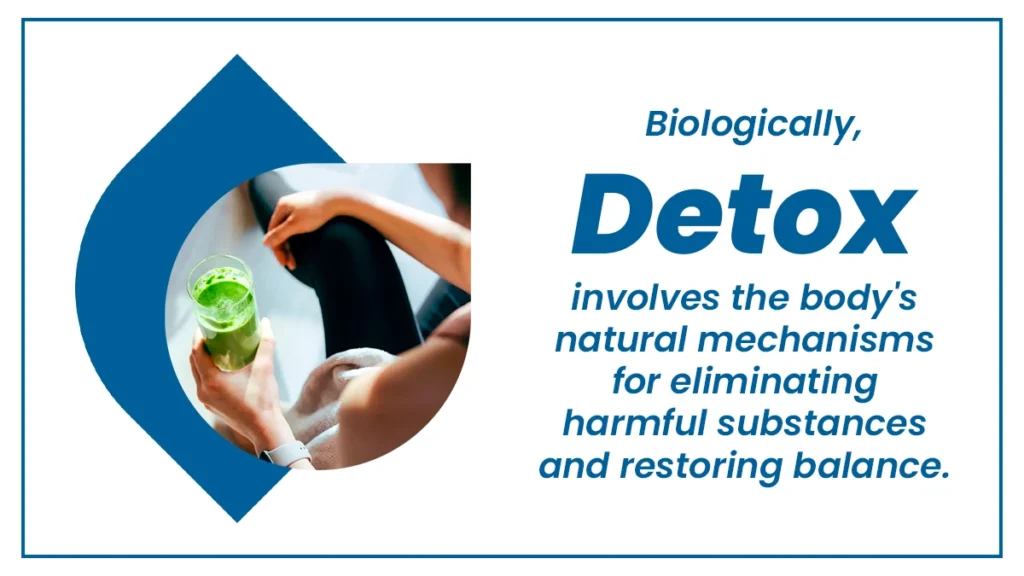Alcohol withdrawal is a critical stage on the path to sobriety. When individuals with alcohol use disorder abruptly stop or reduce their alcohol consumption, they may experience a range of distressing symptoms known as alcohol withdrawal. Learning these symptoms is vital for individuals struggling with alcohol addiction and their loved ones.

The common symptoms of alcohol withdrawal include anxiety, tremors, sweating, nausea, insomnia, and irritability. More serious symptoms, such as hallucinations and seizures, may occur in severe cases. It is crucial to recognize these signs as they can indicate a need for medical intervention and support.
Safe detoxification methods are available to manage alcohol withdrawal symptoms effectively. Medically supervised detox programs offer a structured environment where medical professionals can provide appropriate care, medication, and emotional support.
It is pleasing to seek professional help to ensure a safe and successful detox journey. By recognizing the symptoms of alcohol withdrawal and accessing appropriate detox methods, people can take the first step towards a healthier, alcohol-free life.
Key Takeaways
Alcohol withdrawal is a critical stage on the path to sobriety.
- Alcohol withdrawal symptoms can include anxiety, restlessness, tremors, sweating, and more.
- When you stop drinking, positive changes can occur, such as improved sleep, increased energy, clearer thinking, weight loss, better digestion, and reduced risk of liver disease.
- The duration of withdrawal symptoms when quitting alcohol can vary.
- A support system is essential for managing withdrawal symptoms and ensuring a safer detoxification process.
Take initial steps towards a healthier future at The Haven Detox-Little Rock. Call us now at (501) 271-3342 to get vital help.
Alcohol Use Disorder Statistics
Alcohol use disorder (AUD) is an intense public health concern in the United States. It affects almost everyone from all walks of life, regardless of age or social status. Understanding the statistics surrounding AUD can shed light on its prevalence and impact on individuals and society.
According to NIAAA (National Institute on Alcohol Abuse and Alcoholism), an estimated 14.1 million adults in the U.S. had AUD in 2020. That’s about 5.6 percent of the adult population. Among young adults from 18 to 25 of age, the prevalence of AUD was even higher at 14.8 percent.
The consequences of AUD are far-reaching. Excessive alcohol consumption contributes to approximately 95,000 deaths yearly in the United States (U.S.), making it one of the top preventable causes of death. Alcohol-related accidents, liver disease, and an increased risk of various cancers are among the health risks associated with AUD.
Additionally, AUD can have significant social and economic implications. It leads to productivity losses, increased healthcare costs, and strain on families and relationships. Experts estimated the total cost of alcohol misuse in the U.S. at $249 billion in 2010.
Raising awareness about AUD and promoting prevention, early intervention, and access to treatment are crucial steps in addressing this public health issue. With education and support, individuals and communities can work together to reduce the impact of AUD and promote healthier lifestyles.
The Detox Process
Detoxification, or detox, is crucial for individuals seeking to break free from substance addiction. Biologically, detox involves the body’s natural mechanisms for eliminating harmful substances and restoring balance. Understanding what happens during detox can help individuals navigate this challenging journey.
When someone undergoes detox, their body eliminates the toxins accumulated from substance use. The liver, kidneys, and other organs are vital in this process. Through a series of chemical reactions, these organs break down the substances into less harmful byproducts that can be excreted from the body.
During detox, individuals may share withdrawal symptoms as their body adjusts to the lack of the addictive substance. These symptoms can vary depending on the substance used, including nausea, sweating, restlessness, and anxiety. Recalling withdrawal symptoms can be managed and treated with medical support is essential.
Detox duration varies from person to person and depends on factors such as the substance used, the period of use, and individual health. Detoxification can be done in different settings, including medical facilities or specialized detox centers, where healthcare professionals can provide necessary care and support.
While detox addresses the physical aspect of addiction, it is only the first step in the recovery process. Comprehensive treatment programs, including therapy and support groups, are essential to address addiction’s psychological and emotional aspects and maintain long-term sobriety.
Understanding the biological processes during detox can empower individuals on their journey toward recovery. Individuals can overcome addiction and embrace a healthier, substance-free life with the proper support and resources.
Alcohol Withdrawal Timeline
When someone stops drinking alcohol after prolonged and heavy use, they may experience a range of withdrawal symptoms. It’s essential to understand the alcohol withdrawal timeline to better prepare for the challenges ahead.
Within six to 12 hours after the earlier drink, individuals may experience mild symptoms such as anxiety, tremors, and sweating. Cravings for alcohol often accompany these early signs.
Between 12 to 48 hours, the withdrawal symptoms may intensify. Individuals may experience hallucinations, confusion, and increased heart rate. Seizures can occur in severe cases.
Around 48 to 72 hours, the symptoms typically reach their peak. This period is marked by intense anxiety, irritability, insomnia, and in some cases, delirium tremens (DTs). DTs can be life-risking and require immediate medical attention.
After five to seven days, the most severe symptoms gradually subside. However, some individuals may experience lingering symptoms like fatigue, mood swings, and difficulty concentrating for weeks or months.
Seeking medical support and guidance during alcohol withdrawal is essential to ensure a safe and comfortable process.
Stage 1: Mild Withdrawal Symptoms
Alcohol withdrawal syndrome occurs when individuals with alcohol dependence abruptly stop their alcohol intake. It affects the brain and should be managed under the guidance of a doctor.
In the first stage, which typically begins within six to 12 hours after the latest drink, individuals may experience mild withdrawal symptoms. These can include anxiety, restlessness, irritability, tremors, sweating, and insomnia.
Cravings for alcohol may also be present during this stage. While these symptoms may be irritating, they are manageable and do not pose significant risks.
Stage 2: Moderate Withdrawal Symptoms
As the withdrawal process progresses, individuals enter the stage of moderate withdrawal symptoms. This stage usually occurs between 12 to 48 hours after the last drink.
Symptoms may intensify during this time, including increased anxiety, rapid heartbeat, elevated blood pressure, gastrointestinal distress, and more pronounced tremors.
Some individuals may also experience hallucinations and have difficulty concentrating. It is crucial to seek medical support during this stage to ensure proper care and management of symptoms.
Stage 3: Severe Withdrawal Symptoms
Severe withdrawal symptoms occur around 48 to 72 hours after the last drink. During this stage, individuals may experience severe symptoms, including intense anxiety, agitation, confusion, hallucinations (both auditory and visual), seizures, and delirium tremens (DTs).
DTs is a life-threatening condition that requires immediate medical attention, characterized by severe confusion, disorientation, fever, rapid heartbeat, and extreme fluctuations in blood pressure. Seek emergency medical care if any of these symptoms are present.
With proper guidance and support, individuals can navigate the challenges of alcohol withdrawal and embark on a healthier path to recovery.
Factors Influencing Severity of Withdrawal
Long-term and heavy alcohol use often leads to more severe withdrawal symptoms. The body becomes accustomed to alcohol and undergoes adaptations to function normally. When alcohol is removed, the body struggles to readjust, leading to more pronounced symptoms.
Individual health plays a role in the severity of withdrawal as well. Those with pre-existing medical conditions, such as liver disease or mental health disorders, may experience heightened symptoms and complications during withdrawal.
Previous experiences with alcohol withdrawal can also influence the severity of symptoms. Individuals who have gone through withdrawal before may be more susceptible to more intense symptoms in subsequent episodes.
It is essential to recognize that alcohol withdrawal can be severe and potentially life-threatening. Seeking medical support and guidance during withdrawal is crucial, as healthcare professionals can provide appropriate care, monitoring, and interventions to manage symptoms and ensure a safer detoxification process.
Managing Withdrawal Symptoms
When experiencing alcohol withdrawal, there are steps individuals can take to manage and alleviate symptoms, promoting a safer and more comfortable detoxification process.
Staying Hydrated
Proper hydration is crucial during alcohol withdrawal. Drinking plenty of water can help replenish fluids lost through sweating and reduce symptoms like headaches and dizziness. Avoiding excessive caffeine or sugary beverages is essential, as they can contribute to dehydration.
Proper Nutrition
Eating a balanced diet during withdrawal can support the body’s healing process. Nutrient-rich foods like fruits, vegetables, lean proteins, and whole grains can provide essential vitamins and minerals. Avoiding excessive sugar and processed foods is recommended.
Medication
In some cases, healthcare professionals may prescribe medications to manage withdrawal symptoms. Medicines such as benzodiazepines can help reduce anxiety and seizures. Anti-nausea or sleep aids may be prescribed based on individual needs. Following medical guidance and taking prescribed medications under professional supervision is essential.
Professional Help
Seeking professional help is highly recommended, especially for individuals with severe symptoms or a history of complicated withdrawals. Medical supervision and support can ensure safety, proper monitoring, and appropriate interventions to manage symptoms effectively.
By understanding the factors that influence the severity of alcohol withdrawal and taking steps to manage symptoms through hydration, proper nutrition, medication (if necessary), and professional help, individuals can navigate the detoxification process with greater ease and safety.
Inpatient vs. Outpatient Alcohol Detox
When seeking alcohol detoxification, individuals can choose between inpatient and outpatient programs. Understanding the differences between these two approaches can help people make informed decisions about the most suitable path for their recovery.
Inpatient Alcohol Detox
Inpatient alcohol detox involves staying at a specialized facility for the detoxification process. This option provides round-the-clock medical supervision and support. Individuals with severe withdrawal symptoms, those with a history of complicated withdrawals, or those with co-occurring medical or mental health conditions should consider inpatient detox.
Inpatient detox offers a structured environment where individuals receive close monitoring, access to medical interventions, and support from healthcare professionals. It provides a higher level of care and a controlled setting, minimizing the risk of relapse and ensuring the safety of the individual throughout the detox process.
Outpatient Alcohol Detox
Outpatient alcohol detox allows individuals to receive detoxification services while living at home or in a supportive environment. This option suits individuals with milder withdrawal symptoms, a robust support system, and a stable living environment.
Outpatient detox programs typically involve regular visits to a treatment facility, where individuals receive medical check-ups, medication management, and counseling. It offers more flexibility. It allows individuals to maintain their daily routines, such as work or family commitments. However, it may be less intensive than inpatient detox and may not provide immediate access to medical interventions in case of complications.
Choosing the Right Option
The choice between inpatient and outpatient alcohol detox depends on several aspects, including the severity of withdrawal symptoms, the presence of medical or mental health conditions, the level of support available, and individual preferences. Take advice from healthcare experts or addiction specialists who can assess individual needs and recommend the most appropriate option.
Ultimately, the primary goal of both inpatient and outpatient alcohol detox programs is to provide a safe period for individuals to withdraw from alcohol and begin their recovery journey. People can make informed decisions that best align with their specific circumstances and needs with the help of understanding the differences between these approaches.
Vital Tips to Get You Through Detox
Detoxification can be challenging, but you can increase your chances of success with the right strategies and support. Here are ten excellent tips to help you get through detox:
- Seek Medical Guidance: Consult with healthcare professionals or addiction specialists who can provide medical care, monitor your progress, and offer appropriate interventions.
- Build a Support System: Surround yourself with understanding and supportive individuals who can offer encouragement, lend an empathetic ear, and assist when needed.
- Stay Hydrated: Drink plenty of water to replenish fluids and flush out toxins. Avoid excessive caffeine or sugary beverages, as they can contribute to dehydration.
- Follow a Balanced Diet: Eat nutrient-rich foods to support your body’s healing process, which include vegetables, fruits, whole grains, and proteins in your meals while minimizing sugar and processed foods.
- Engage in Light Exercise: Incorporate gentle physical activities, such as walking or stretching, to help reduce stress, improve mood, and promote overall well-being.
- Practice Relaxation Techniques: Explore relaxation methods like deep breathing, meditation, or yoga to manage anxiety, promote relaxation, and improve sleep quality.
- Establish a Routine: Structure your day with a consistent schedule that includes regular meals, sleep patterns, and activities. It can provide stability and a sense of control during the detox process.
- Find Healthy Distractions: Engage in activities you enjoy, such as reading, listening to music, or pursuing hobbies, to redirect your focus away from cravings or withdrawal symptoms.
- Communicate Openly: Share your thoughts, emotions, and struggles with trusted individuals or support groups. Talking about your experiences can help alleviate stress and provide valuable insights and encouragement.
- Celebrate Small Victories: Admit and reward yourself for each milestone achieved along the way. Celebrating small wins can boost motivation and reinforce your commitment to recovery.
Remember, detox is a unique journey, and everyone’s experience may vary. By implementing these tips and seeking professional support, you can navigate detox more effectively and lay a solid foundation for your recovery.
Frequently Asked Questions (FAQ)
What are the symptoms that occur when a person stops drinking?
When a person stops drinking, they may experience various symptoms, including:
Tremors: Shaking or trembling hands, arms, or legs.
Anxiety: Feelings of unease, restlessness, or worry.
Nausea: Upset stomach, feeling sick, or vomiting.
Headaches: Pain or discomfort in the head.
Sweating: Excessive perspiration, especially during sleep.
Insomnia: Difficulty falling asleep or staying asleep.
Irritability: Easily becoming annoyed or agitated.
What are the seven things that happen when you stop drinking alcohol?
When you stop drinking alcohol, several things may happen:
Improved sleep: You may experience better sleep patterns and feel more rested.
Increased energy: Quitting alcohol can lead to higher energy levels.
Weight loss: Cutting out alcoholic beverages may contribute to shedding excess pounds.
Clearer skin: Your skin may appear healthier and more radiant.
Better digestion: Quitting alcohol can improve digestion and reduce stomach issues.
Enhanced mental clarity: Your thinking and concentration abilities may improve.
Overall well-being: Quitting alcohol can positively impact your physical and psychological health.
How long do symptoms last when you quit drinking?
The duration of symptoms when you quit drinking varies depending on several factors, such as the individual’s overall health, the extent of their alcohol consumption, and any underlying medical conditions.
In general, symptoms of alcohol withdrawal can begin within hours after the last drink and typically peak around 24 to 72 hours. However, some symptoms, such as insomnia or mood swings, may persist for weeks or months. It’s essential to seek medical advice and support when quitting alcohol to ensure a safe and comfortable withdrawal process.
Uncover Sobriety at The Haven Detox-Little Rock
Are you seeking professional support on your journey to sobriety? Look no further. The Haven Detox-Little Rock provides an empathetic and safe environment to help you overcome alcohol addiction.
Our team of experts is devoted to your well-being, offering personalized care and evidence-based treatments. With state-of-the-art facilities and a holistic approach, we prioritize your comfort and long-term recovery. Take the first step towards a more joyful life today. Call us at (501) 271-3342 to learn more about our detox programs and start your transformative journey at The Haven Detox-Little Rock.



